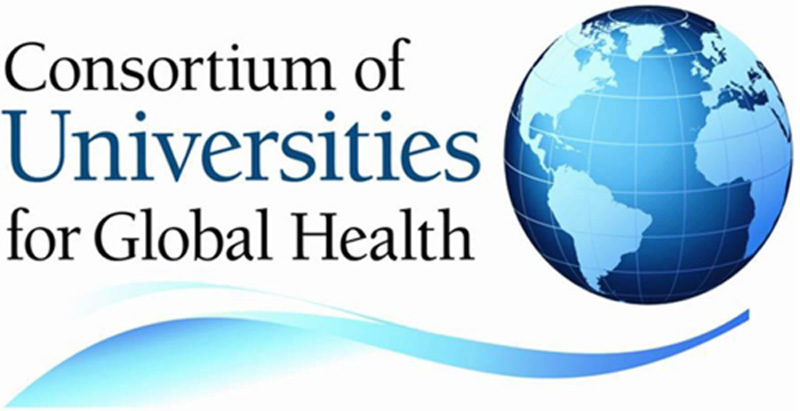Tuesday, March 24th, 2020
With the world’s highest rate of lethal gun violence, the Americas are in the midst of an unmitigated public health crisis. Just six countries account for over half of 250,000 annual global gun deaths: the United States, Mexico, Brazil, Colombia, Venezuela and Guatemala. But activists, medical professionals, human rights workers, and policy experts are working together to stop this bloodshed and the vectors that make it happen. This webinar brings together leading researchers and advocates on this issue. John Lindsay-Poland and Natalia Báez are co-authors of Gross Human Rights Abuses: The Legal and Illegal Gun Trade to Mexico, and are both active in a working group in dialogue with the Mexican government about gun violence and trafficking. Dr. Hargarten serves as the Director of the Comprehensive Injury Center and is the Associate Dean for Global Health at the Medical College of Wisconsin.
Webinar objectives:
1. Frame gun violence as a major public health crisis.
2. Describe the flow of guns (the vector of this public health burden) coming into Mexico
3. Learn more from the lived experience of gun violence in Mexico
4. Outline selected strategies to address the flow of guns into Mexico
Speakers
Stephen Hargarten, MD, MPH is a professor in the Department of Emergency Medicine, associate dean for Global Health, and director of the Comprehensive Injury Center at the Medical College of Wisconsin. His research interests reflect an intersection of injury and violence prevention and health policy to address the burden of this biopsychosocial disease. His work in linking data systems for understanding violent deaths informed the development of CDC’s National Violent Death Reporting System.
Natalia Báez holds a Master’s of International Relations. She has extensive international experience with a passion for international relations, human rights, and security. Currently, she is a researcher for the Mexican Commission for the Defense and Promotion of Human Rights.
John Lindsay-Poland is a writer, activist, researcher and analyst focused on human rights and demilitarization, especially in the Americas. He has written about, researched and organized action for human rights and demilitarization of US policy in Latin America for 30 years. Currently he coordinates Stop US Arms to Mexico, a project of Global Exchange, and serves as California Healing Justice Associate of the American Friends Service Committee, with a focus on police demilitarization.
Moderator
Keith Martin, MD, PC is a physician who, since Sept. 2012, has served as the founding Executive Director of the Consortium of Universities for Global Health (CUGH). Between 1993-2011, Dr. Martin served as a Member of Parliament in Canada’s House of Commons. He held shadow ministerial portfolios in foreign affairs, international development, and health. He also served as Canada’s Parliamentary Secretary for Defense and was appointed to the Queen’s Privy Council for Canada. His main areas of focus are in global health, foreign policy, security, international development, conservation and the environment. Dr. Martin has served on numerous diplomatic missions to areas in crisis and served as a physician in South Africa on the Mozambique border during that country’s civil war. He has traveled widely in Africa, visiting the continent 28 times. He has had over 170 editorial articles published in major newspapers and has appeared frequently as a political and social commentator on television and radio.
Videos:
Where the Guns Go: U.S. Policy and Human Rights in Mexico is a 26-minute film with compelling testimony by family members of disappeared people, human rights defenders, and journalists in Mexico. In English and Spanish. https://vimeo.com/214922986
Border Encuentro: Stop US Arms to Mexico is a 7-minute film about migrant youth discussing and confronting the arms trade and border militarization. https://vimeo.com/333210816
Go to www.stopusarmstomexico.org for news (in English and Spanish), reports maps, upcoming events and the above two films. This includes the report Natalia referenced, Gross Human Rights Abuses: The Legal and Illegal Gun Trade to Mexico.
Upcoming events:
Find additional webinars on this issue at https://stopusarmstomexico.org/events/
Legislative asks:
Stop US Arms to Mexico’s fundamental policy agenda for the U.S. and Mexico is laid out in the Gross Human Rights Abuses report:
To the United States Government
1. Reduce legal firearms exports to Mexico to levels below their amount before the “war on drugs” was declared and the Merida Initiative began in 2007.
2. Establish and implement criteria for end users of legally exported firearms that exclude ex- ports to all police and military units for which there is credible information of members of those units having colluded with criminal organizations or committed gross human rights abuses.
3. Ensure that applications for gun export licenses correctly identify end users for exported weapons, including firearms and other equipment, and establish efficient mechanisms for tracing such weapons from producer to end users.
4. Until u.s. policy excludes firearms end users that are credibly alleged to have colluded with organized crime or human rights violations, and has implemented systems to identify end users, the United States should suspend firearms exports to the Mexican military and police, including the license for the Mexican Navy to conduct assembly of up to $265 million worth of military firearms parts produced by Sig Sauer, Inc.
5. Prohibit the sale of military-type assault weapons and high-capacity magazines, which are easily obtained by Mexican criminal organizations through retail purchases in the United States and trafficked over the border.
6. Continue to regulate export licenses for semi-automatic firearms (including designs for 3D printing of weapons) within the State Department, with Congressional oversight, rather than the Commerce Department.
